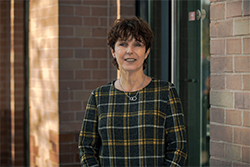What you should know about the Berlin school system as an expat
If you are planning to move to Berlin with your children, or are already living here as an expat, you need to be aware of the different schooling options and the Berlin school system in general. Each state in Germany determines its own education laws so naturally, the Berlin school system is different from the school systems in other states. Regardless of that, all children who live in Germany are required to attend school for at least nine years. In addition, there are no catchment schools meaning that, in Berlin, parents and their children can choose their desired school.
Different types of schools and qualifications
Primary school
Usually, children from the age of six attend primary school for six years, after which progression to another school is required by law. In addition, unlike in other federal states, all primary schools in Berlin are full-day schools.
Gymnasium
Pupils who attend the "Gymnasium" in Berlin usually attend it for six years or from grade 7 until grade 12. After grade 12, they can take the final examination (Abitur) which serves as an entrance qualification to general higher education. Many "Gymnasiums" have pedagogical focuses such as science, music, language or sports. When attending a "Gymnasium", pupils are expected to possess a high level of self-motivation.
Integrierte Sekundarschule
Unlike at "Gymnasien", pupils attending an Integrierte Sekundarschule are individually supported to the best of their abilities, which results in equal opportunities and more motivation for each pupil. Pupils can obtain all qualifications: Berufsbildungsreife (certificate of vocational education - BB), erweiterte Bildungsreife (extended certificate of education - eBB) or Mittlere Schulabschluss (certificate of intermediate education - MSA), as well as the Abitur after thirteen years (in contrast to the "Gymnasium" with the Abitur after twelve years).
Ganztagsschule and Welcome Classes
All primary, interdenominational and Integrierte Sekundarschule, but only some "Gymnasien", in Berlin are full-day schools. The so-called “ergänzende Hilfe und Betreuung (eFöB)”, which regulates after school supervision, provides opportunities for sport, music, games and leisure, as well as help with homework or learning German.
Pupils who cannot speak German attend Welcome Classes which are essentially language learning groups. They are intended to support the children and help them learn the language as quickly as possible for easy integration into the German school system. Welcome Classes are available in all types of schools.
Financial support
Your children have a right to be taught. This is why public education in Germany is free. Additionally, there is financial support available from the “Bildungspaket” (Educational Package funded by the state) for personal school requirements, excursions and class trips, leisure activities and more. Privately owned schools such as the Mentora Gymnasium also offer children from low-income families the possibility of attending a private education as school fees are income-based.
